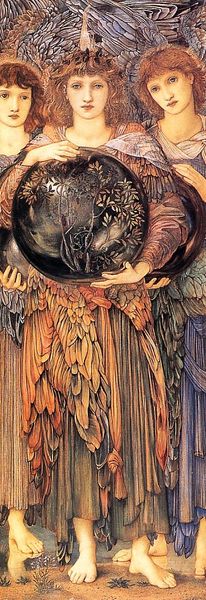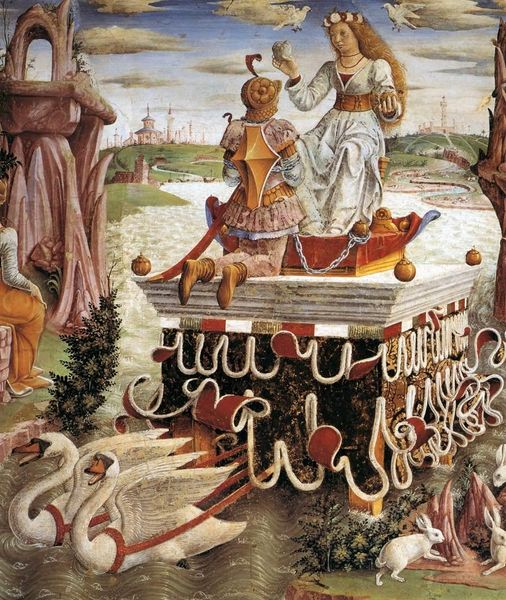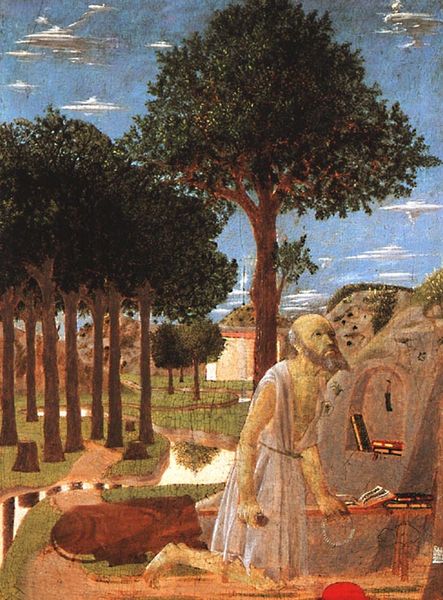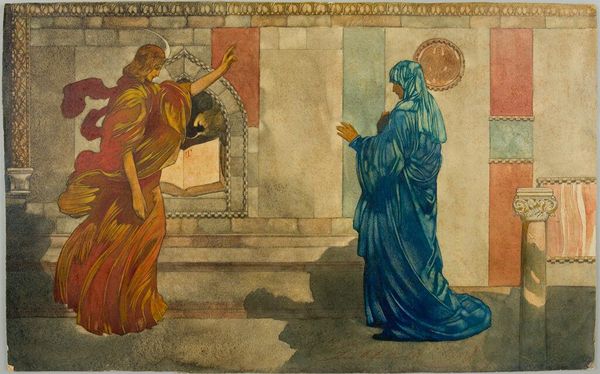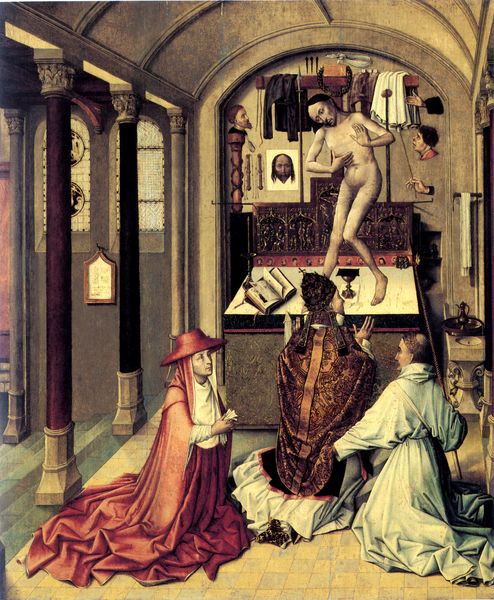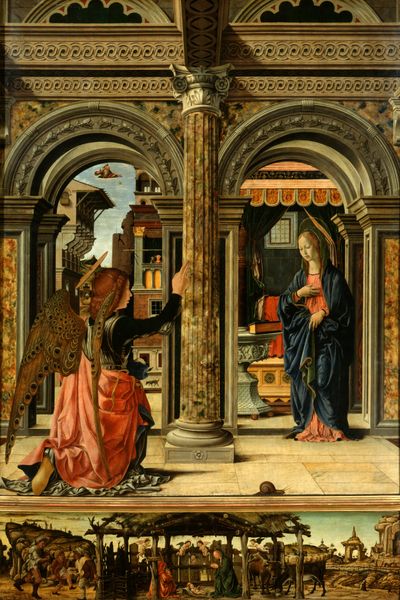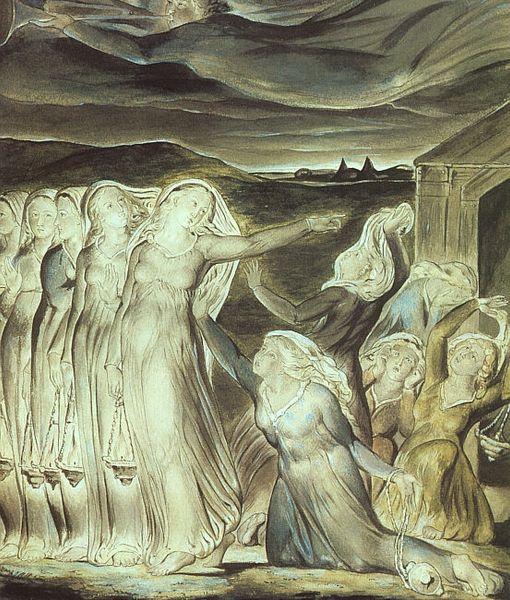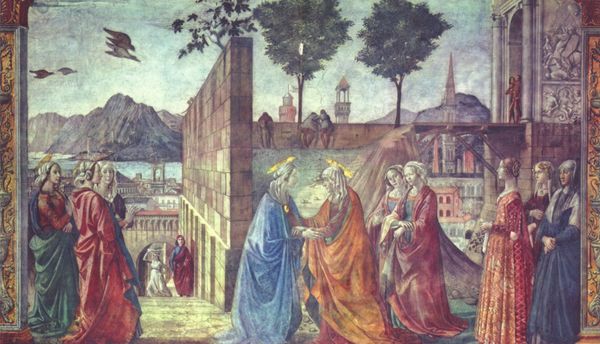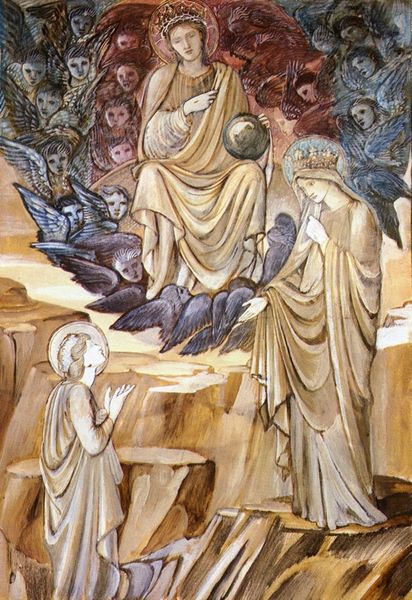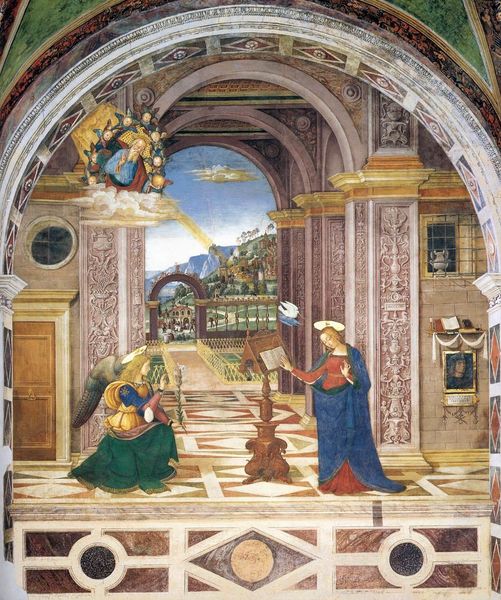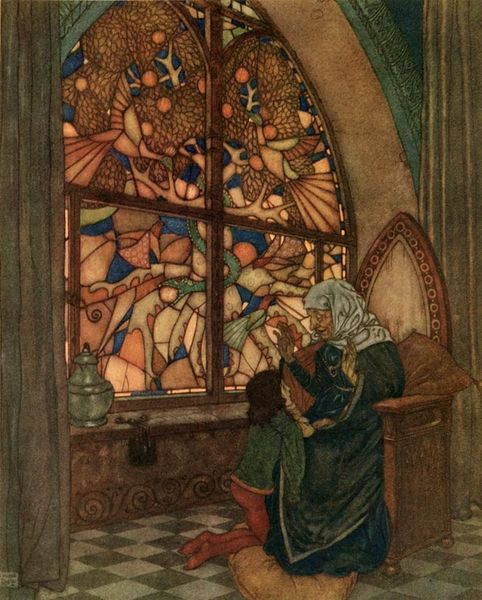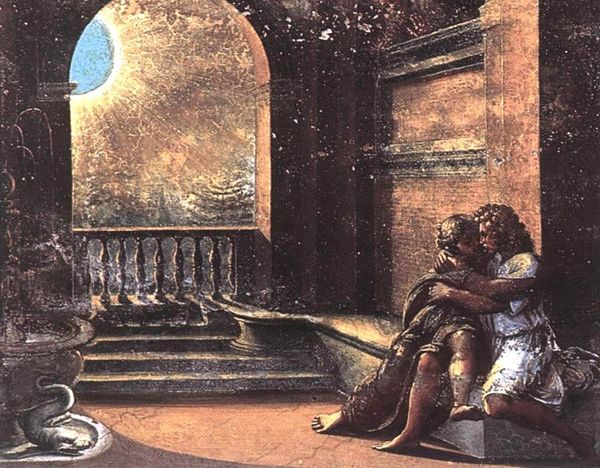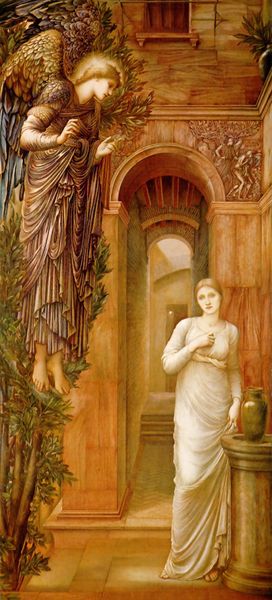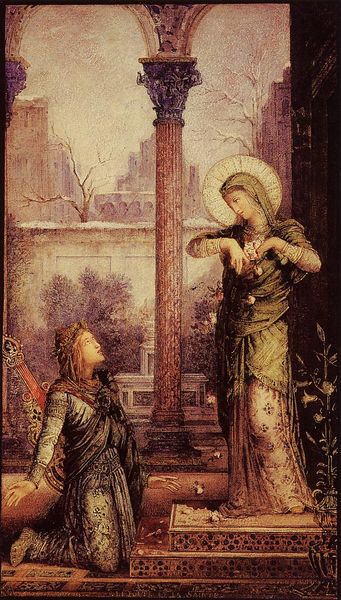
Annunciation 1500
0:00
0:00
sandrobotticelli
Hyde Collection Art Museum, Glens Falls, NY, US, Kelvingrove Art Gallery and Museum, Glasgow, UK
oil-paint, fresco
#
portrait
#
narrative-art
#
oil-paint
#
landscape
#
holy-places
#
perspective
#
figuration
#
form
#
fresco
#
oil painting
#
christianity
#
history-painting
#
academic-art
#
italian-renaissance
#
angel
Dimensions: 49.5 x 26.8 cm
Copyright: Public domain
Botticelli's Annunciation is made with tempera on wood, a common medium for paintings in 15th-century Florence. The tempera technique involves mixing pigment with a binder, usually egg yolk, which dries quickly, creating a matte finish and vibrant colors. Look closely at how the quick drying time would have necessitated a deliberate, careful approach, as the artist builds up layers of paint, almost like a ritual. The gold embellishments, common in Renaissance painting, were painstakingly applied, adding to the surface's richness. The composition and architectural setting also speak to the processes of the Renaissance. The symmetrical, orderly space reflects the era's emphasis on reason and the rediscovery of classical forms. This focus on perfect proportions would have taken a great deal of planning. By considering the materials and techniques used, we can better appreciate the craftsmanship and cultural values embodied in this iconic painting.
Comments
No comments
Be the first to comment and join the conversation on the ultimate creative platform.
